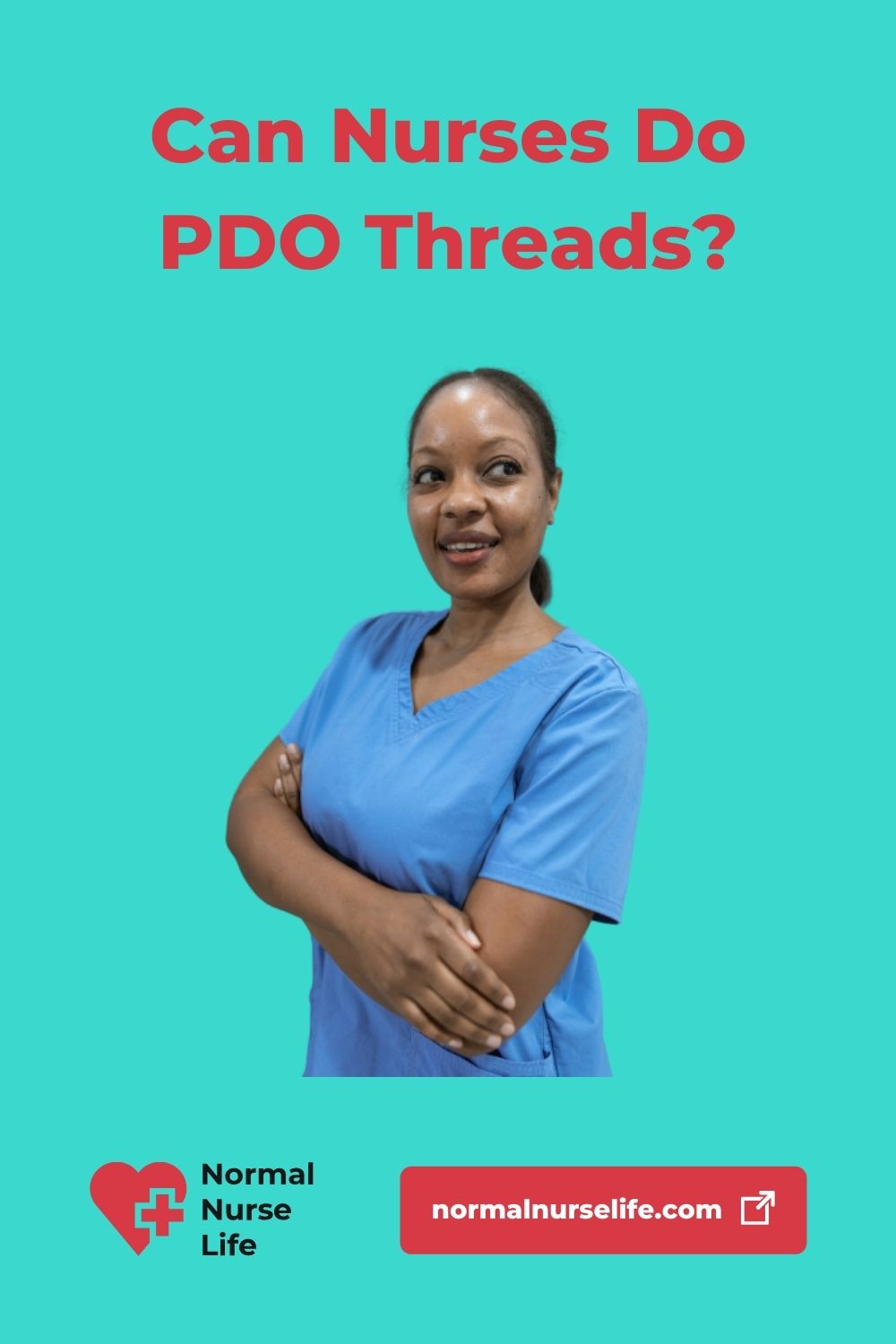Nurses are allowed to offer this kind of service to patients, however, they can’t do it right out of school. They need additional training through a laser botox, advanced injectable course, or 6 months of injecting and botox experience.
Can nurses do PDO threads?
Obviously, there are threads in place in this process and there’s a lot of consequences that can come from someone who is inexperienced with this kind of equipment.
Some hospitals don’t offer this at all, so it’s going to depend on where you’re working from.
The body has so many veins and arteries in it, that putting any of this stuff in the wrong area could potentially kill you regardless of your intent.
This is why there aren’t a lot of young people making innovations in the medical industry.
You need that kind of experience to do just about anything significant in your career.
Fortunately, there really aren’t any restrictions on the kind of nurse that you are if you want to go into this field.
You might be pushed in a certain direction due to your job title, but you still have the medical authority to get trained in this skill.
Pin me on Pinterest!

Table of Contents
Can registered nurses do thread lifts?
Registered nurses aren’t the first option that people have when they want this kind of operation done on them, but they are able to do it when they have enough experience.
For the most part, surgeons are going to be the best choice when it comes to the experience that they have in their medical field.
At the same time, there are tons of registered nurses who support surgeons that have knowledge of these kinds of procedures.
All that needs to happen is nurses getting 6 months of experience, or they take a 2-day thread lift course.
Just like everything else in the medical field, this can change depending on your state.
Doing thread lifts isn’t something you should base your nursing career around, but it can be a useful skill if you want to diversify your abilities.
Before you go about this professionally, it may be helpful to gain some insight from others and find out what techniques are most effective with an actual patient.
See also: Can a Registered Nurse Bill for Services?
Fortunately, you have the authority to do this as a registered nurse, but there’s no harm in being careful.
Are PDO threads dangerous?
For the most part, PDOs are not dangerous, but there are precautions for a reason and there can certainly be harm done if someone is reckless with the tools that they’ve been given.
Thankfully, this kind of medical procedure is relatively low-risk and there isn’t much harm that can be done.
For the most part, PDO is incredibly small and usually has less mass than the dosage of drugs that you’re likely to take.
See also: Can Nurses Take Adderall?
There are other things that can be dangerous for your skin such as plastic surgery, but thankfully, nothing too dangerous is being added.
For the most part, you aren’t dealing with tools that are too dangerous which is largely a good thing, but it’s not an excuse to be reckless with the patient that you’re going to be taking care of.
See also: How to Get Over Fear of Needles as a Nurse
Even though there aren’t many dangerous things that can happen in the operation, the patient still deserves to be as comfortable in a position as possible.
In reports after a patient gets an operation done on them, they rarely report bruises or bleeding when they report side effects.
As long as you’re confident in your ability as a nurse and have experience in surgery, this should be a painless experience.
See also: Plastic Surgery Nurse Interview Questions
What not to do after PDO thread lift?
Generally, you shouldn’t apply anything to your skin that would make it sensitive, if you have just had a thread lift.
Hot liquids have a real effect on the pores and may reduce some of the effects that the nurse has worked hard to achieve.
But generally, there are a lot of smaller, much less noticeable things that you may want to do in order to prevent your thread lift from being ineffective.
One of the major areas where this can happen is where we sleep.
Sleeping on your face can put a lot of pressure on your skin and undo a lot of the work in your PDO thread lift.
Alcohol is another area where the patient should refrain for at least a couple of days.
It’s a depressant that is going to take the stress off your mind but is going to add physical stress to your skin and other body parts.
See also: Why Alcohol Swab Before Injection?
For the most part, refraining from making drastic facial expressions is also going to do you a lot of help in this area as well.
It’s a subconscious action but has real effects on what is happening to your skin.
The best thing you can do to preserve that look is eat a well-balanced diet with tons of nutrition and get a lot of sleep.
Conclusion: Can nurses do PDO threads?
All kinds of medical operations have a responsibility to the people who work in the hospital, even if the operation is relatively low-risk like a thread lift.
Generally, the person performing the thread lift is someone who is going to have experience with that in their industry, but nurses can learn this skill as well.
It’s a relatively low-risk operation which is why there aren’t as many requirements when it comes to PDO threads.
A patient is only required to learn around six months of experience or someone who has experience.
The nurse can also take a training course which is only going to last a couple of days.
You should check the laws that are in your state because there are bound to be some differences from state to state.
Thankfully, there aren’t too many consequences when it comes to this process, but you also should ensure that the patient will take the proper steps after the operations so the effect stays on their skin.
You also may want to follow up and ask them more questions to learn from your operations.
Now you should know whether can nurses do PDO threads or not.
Related articles of ours:
- Can Registered Nurse Do Botox?
- Can Nurses Do Ultrasounds?
- Can Nurses Treat Family Members?
- Can Nurses Cut Diabetic Toenails?
- Can Nurses Remove Stitches?
I’d be glad if you could give this article a star rating down below. Thank you in advance!
